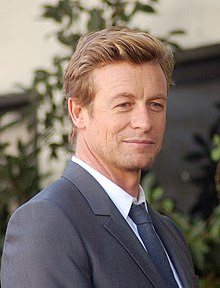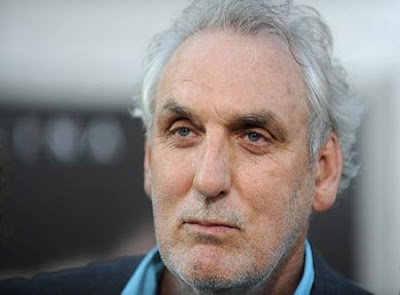“I used to be a Wiggle” said the bloke
behind me introducing himself to the stranger seated next to him.
No-one
mentioned Geoffrey Rush or Cate Blanchett all night (for very different
reasons), but there was a steady parade of their colleagues – Bryan Brown, Paul
Hogan, Rachel Griffiths, Sam Neill, Noni
Hazlehurst, Shane Jacobson, Jack Thompson and on-screen, Nicole Kidman (three
times) and Ben Mendelsohn (once).
These AACTAS are well named for purposes of pronunciation. Seven years ago, when the AFI moved the annual film awards from a kind-of Brit model to a kind-of Hollywood model and strengthened the television component, more emphasis has been placed on the actors. Given their international success these past 20 years, it’s a wise strategy.
 |
| Simon Baker |
The
undisputed highlight of the night, however, was the celebration of a film
director, the larger than life Phillip Noyce. Although more than half his
speech was missing from the telecast, Noyce paid tribute to many, including Albie
Thoms, Aggie Read and David Perry who told him “anyone can make a film”, to the Sydney Filmmakers Co-op, to Gary
Foley in Backroads (“He taught me about black-white relations”)
to David Elfick, Bob Ellis and Newsfront,
to Ken G Hall (“He taught me how to shoot
the Maitland flood”) to the property developer-conservationist wars of Heatwave, to his breakthrough Dead Calm, his Hollywood years and his
return for the remarkable Rabbit-Proof Fence.
It was a hugely generous speech from Noyce. The heartfelt tributes included
Harrison Ford, Jeff Bridges, Michael Caine, David Elfick, Nicole Kidman,
Malachi Kirby (“scariest director in the
world”), Werner Herzog, Peter Gabriel, Kathy Lette, David Stratton, Gillian
Armstrong and Liev Schreiber and all just reinforced Noyce’s place in the
pantheon of Australian filmmakers.
 |
| Phillip Noyce |
Technically,
the venue at the Star Casino had issues. Structured for a delayed television schedule,
presenters awkwardly have to look left of stage to read from the teleprompter
and remain unsure of where to look when not using the device; dual presenters
on stage with only one mike caused problems; and with no revolving stage, there
was frenzied activity after musical acts to dismantle sets and drag everything
off-stage.
 |
| Russell Crowe |
“I didn’t actually intend to do that – I was trying to keep
my bits away from her bits, and she’s been given one of those pieces of elastic
that the girls get when you do those scenes, which protects them from all
things, and my bits and pieces were in a little canvas sack with a drawstring.
And it was actually my desire to keep the bits apart. It wasn’t until the
opening night of the film that it was pointed out by none other than Jackie
McKenzie’s beautiful late mother that we were in fact, in her mind, engaged in
sodomy. Anyway that was just a story about sensitivity!”
There
appeared to be a couple of near-misses in mixed up cues, a couple of The
Angels starting announcing an award the wrong side of an ad break and, also
cut from the telecast, one remarkable wardrobe malfunction. AFI CEO Damian
Trewhella appeared on stage with the buttons of his suit jacket mismatched,
meaning one side hung lower than the other, the effect causing his lapel to
push his tie askew. He almost had the appearance of a member of the homeless
wandering in on proceedings.
 |
| Dr Mohan Agashe |
Mohan’s latest film, winner of Best Film at India’s 2017 National Film Awards, had been one of the nine nominated for the inaugural ACCTA Best Asian Film, but Mohan had a “sour toe”, the doctors were reluctant for him to travel, so would I represent Kaasav: Turtle at the AACTAs? The AACTA staff were generous through-out, despite my misgivings about the optics of an Aussie bloke in his 70th year accepting an Award for an Indian film that had just won Best Asian film.
By the time we reached the Red Carpet, any chance of Kaasav getting up was gone. Beautiful Indian actresses in saris seemed to be everywhere I looked (there were three Indian films in the nine nominated) and Indian heavyweight actors like Anupam Kher (“My current film is my 510th”) were up on stage.
The winner Dangal is reportedly the first Indian
film to have grossed $300 million world-wide.

No comments:
Post a Comment
Note: only a member of this blog may post a comment.